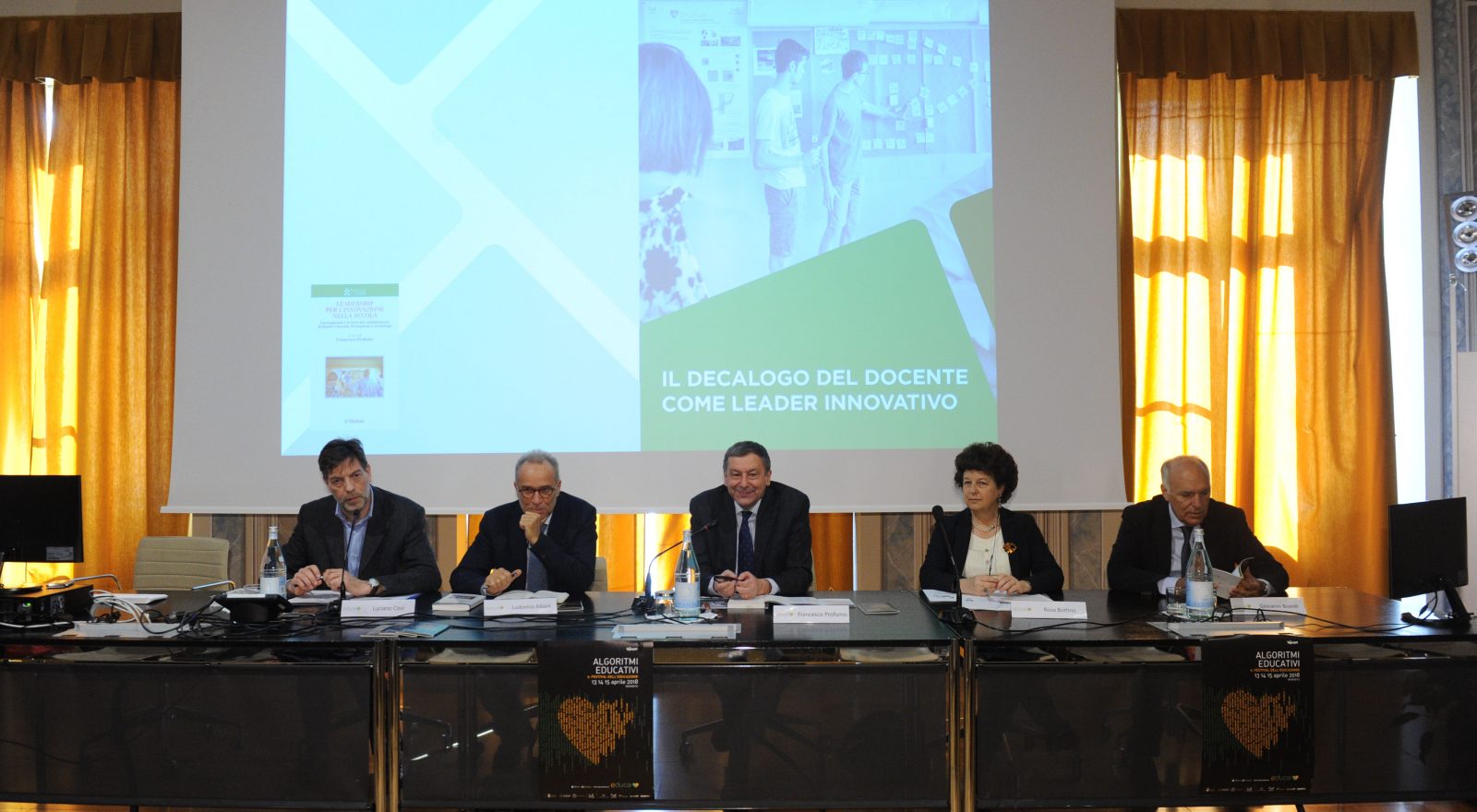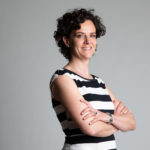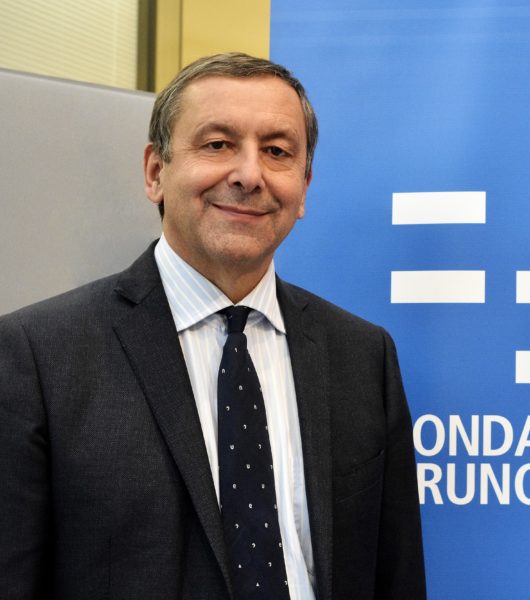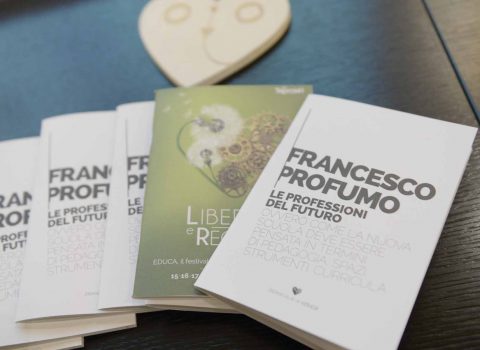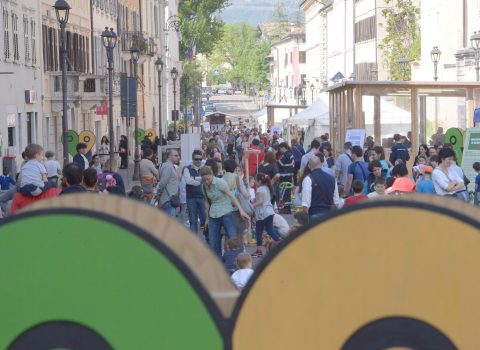
Leadership for innovation in schools
The book dedicated to change in schools through the training of teachers and principals and to digital programs was presented at the EDUCA Festival
What is the role of leadership in educatuion today? What challenges are driven by innovation in schools and what are the keys to change? What is the role of the “film director”, the principal, and that of the “orchestra conductor”, the teacher, in guiding students and school staff to the new horizons dictated by the new schools? What is the role of digital technology: a tool or a nuisance? Opportunities or dangers?
These questions were the food for thought of the debate “Leadership for innovation in schools” that was held today in Educa with Francesco Profumo, FBK President and editor of the book that gave the name to the event, together with some authors of the book, Giovanni Biondi, President of INDIRE, Maria Rosa Bottino, Director CNR-ITD, Luciano Covi, IPRASE Director, and Ludovico Albert, President of the Foundation for Schools of Turin.
During the opening, Francesco Profumo recalled: “When we thought about writing this book, we reflected on the fact that in schools there are some levers that are critical for the system to work and to give a response to students: training and professional development of principals and teachers, and digital technologies. A third topic is to enhance good practices so that they do not remain just good experiences of the past, but can become real models applied in schools, to be fully implemented in daily practice “.
Our approach toward digital technology must start from the contents and the kids as emerges from the history of technologies at school at the center of the talk by Maria Rosa Bottino: “The first national plan dedicated to computer science in schools provided for the teaching of a number of software programs. Today we talk about computational thinking and connected, hybrid environments, in which what matters are relationships and the network, the main element schools must address now and in the future”.
To Giovanni Biondi, who has always devoted his attention to the issues of school spaces – referring not only to architecture, but also to furnishings and their use – teaching necessarily has to face organizational issues: “We are seeing a revolution that involves a critical change in space and time: new school environments and new reticular models that go beyond the encyclopaedic model and teacher-led lessons”.
And the continuing and consistent training of teachers as well as of principals, in a continuous and consistent manner, represents the other key lever to steer and not be steered by digital technologies: “There are many interesting models abroad: the Finnish system, for example, provides that the best teachers be assignedto the training programs, while in Singapore teachers must take at least 100 hours of mandatory training per year – Luciano Covi recalled the audience – Technology and kids change, and so should teaching methods that today in Italy still rely, in 80% of cases, on teacher-led training. More than 60% of the teaching staff is more than 50 years old, while for example in Korea it is 30 years old: this is why continuing education in a country such as ours is essential to bridge the gap”.
The innovative leaders in schools, teachers and principals, are therefore strategic figures and have many roles: “They are the spokespeople who stimulate the school system through innovation, but also have great organizational capabilities and an open mind: they know that the future of society and of the country is built in schools”, Ludovico Albert concluded.
After this talk, FBK researchers Cesare Furlanello, Michele Trainotti, Silvia Gabrielli and Enrico Maria Piras presented four innovative research projects carried out by FBK for and with schools in partnership with the main players in the education system:
- Webvalley, the science summer school dedicated to young talents between 17 and 18 years old, who spend three weeks in the mountains of Trentino to conduct real projects on social issues, including delicate ones such as the one of the 2018 edition that will deal with of pediatric oncology and privacy in cooperation with the “Bambin Gesù” Pediatric Hospital;
- the Smart Cities and Communities High Impact Line project for the “student’s folder”, which contains and enhances the students’ school and extra-shool background, enhancing their skills;
- and finally two European projects dedicated to digital health, respectively dedicated to the prevention of cyberbullying (EIT Creep) and strengthening young people’s mental resilience (Upright project).
